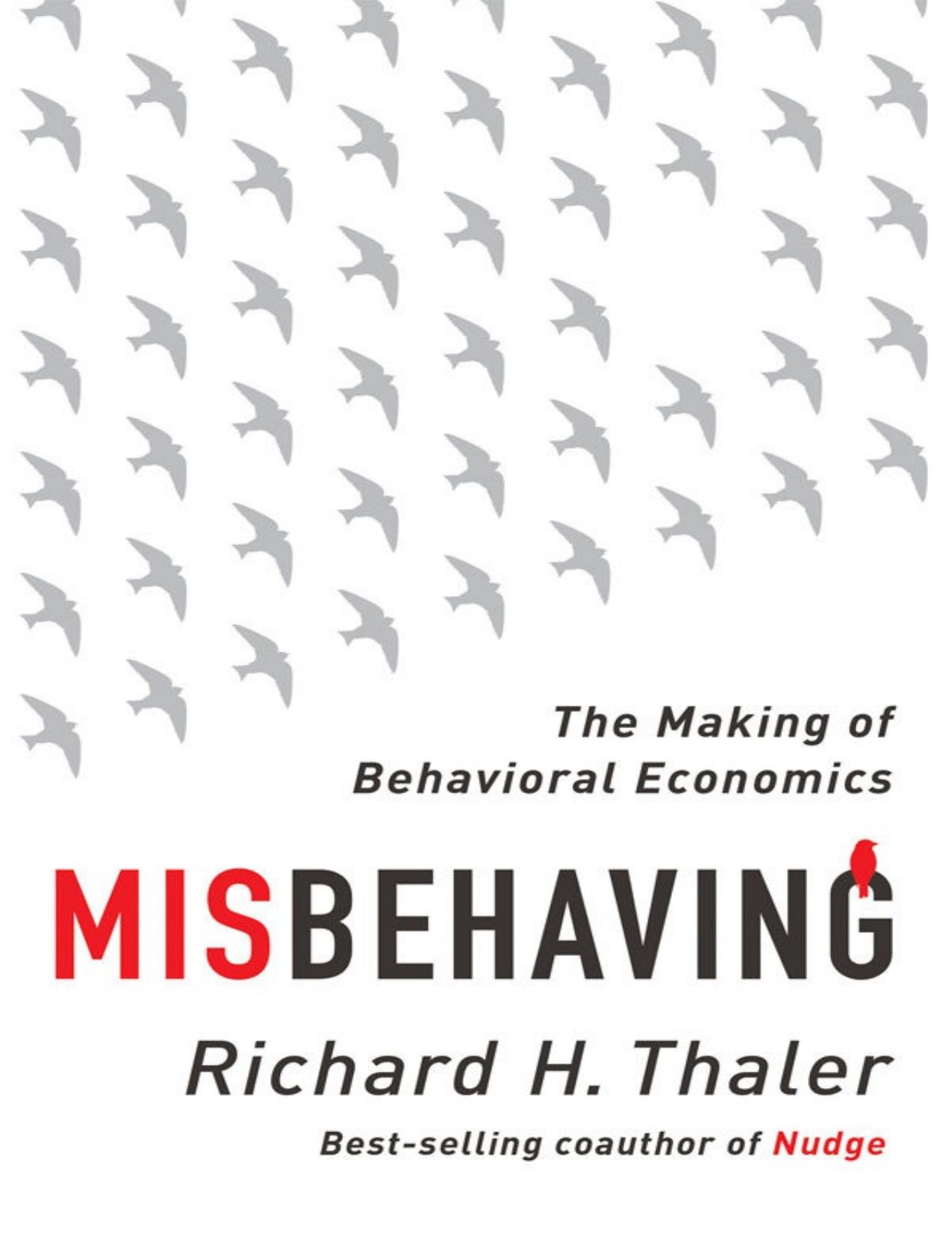Misbehaving: The Making of Behavioral Economics by Richard H. Thaler

Author:Richard H. Thaler [Thaler, Richard H.]
Language: eng
Format: epub, mobi, pdf
Publisher: W. W. Norton & Company
Published: 2015-05-10T22:00:00+00:00
Many first and second level thinkers guessed 33 and 22. But what about the guesses of 99 or 100; what were those folks up to? It turns out that they all came from one student residence at Oxford University. Contestants were limited to one entry, but someone up to some mischief had completed postcards on behalf of all of his housemates. It fell to my research assistants and me to make the call on whether these entries were legal. We decided that since each card had a different name attached, we would leave them in, and collectively they moved the winning guess from 12 to 13. Luckily, no one from that house had guessed 13.
We asked participants to write a short explanation of their logic, which we would use as a tie-breaker. Their explanations provided an unexpected bonus. Several were quite clever.††
There was a poet who guessed zero: “So behaviourists observe a bod, an FT reader, ergo clever sod, he knows the competition and will fight ‘em, so reduces the number ad infinitum.”
Here is a Tory who, having decided the world cannot be counted on to be rational, guessed 1:
“The answer should be naught [0] . . . but Labour won.”
A student who guessed 7 justified his choice: “because my dad knows an average amount about numbers and markets, and he bottled out at ten.” Note that like many young people, he underestimated his father. Had he given his father credit for thinking one level beyond the average contestant, he might have won!
Finally, another poet who guessed 10: “Over 67 only interests fools; so over 45 implies innumeracy rules. 1 to 45 random averages 23. So logic indicates 15, leaving 10 to me.”
As illustrated by all these FT guessers, at various levels of sophistication, we see that Keynes’s beauty contest analogy is still an apt description of what money managers try to do. Many investors call themselves “value managers,” meaning they try to buy stocks that are cheap. Others call themselves “growth managers,” meaning they try to buy stocks that will grow quickly. But of course no one is seeking to buy stocks that are expensive, or stocks of companies that will shrink. So what are all these managers really trying to do? They are trying to buy stocks that will go up in value—or, in other words, stocks that they think other investors will later decide should be worth more. And these other investors, in turn, are making their own bets on others’ future valuations.
Buying a stock that the market does not fully appreciate today is fine, as long as the rest of the market comes around to your point of view sooner rather than later! Remember another of Keynes’s famous lines. “In the long run, we are all dead.” And the typical long run for a portfolio manager is no more than a few years—maybe even just a few months!
________________
* When asked which he was more proud of, the hall of fame designation or his Nobel Prize, Gene said the former, pointing out that it had fewer recipients.
Download
Misbehaving: The Making of Behavioral Economics by Richard H. Thaler.mobi
Misbehaving: The Making of Behavioral Economics by Richard H. Thaler.pdf
This site does not store any files on its server. We only index and link to content provided by other sites. Please contact the content providers to delete copyright contents if any and email us, we'll remove relevant links or contents immediately.
| Advertising | Consumer Behavior |
| Customer Service | Marketing |
| Public Relations | Sales & Selling |
| Search Engine Optimization |
Influence: The Psychology of Persuasion by Robert B. Cialdini(4772)
The Miracle Morning by Hal Elrod(4711)
The Hacking of the American Mind by Robert H. Lustig(4373)
Pre-Suasion: A Revolutionary Way to Influence and Persuade by Robert Cialdini(4216)
Unlabel: Selling You Without Selling Out by Marc Ecko(3657)
Ogilvy on Advertising by David Ogilvy(3599)
Hidden Persuasion: 33 psychological influence techniques in advertising by Marc Andrews & Matthijs van Leeuwen & Rick van Baaren(3550)
Purple Cow by Seth Godin(3195)
Who Can You Trust? by Rachel Botsman(3129)
Kick Ass in College: Highest Rated "How to Study in College" Book | 77 Ninja Study Skills Tips and Career Strategies | Motivational for College Students: A Guerrilla Guide to College Success by Fox Gunnar(3114)
The Marketing Plan Handbook: Develop Big-Picture Marketing Plans for Pennies on the Dollar by Robert W. Bly(3045)
This Is Marketing by Seth Godin(3021)
I Live in the Future & Here's How It Works by Nick Bilton(2990)
The Power of Broke by Daymond John(2972)
The Tipping Point by Malcolm Gladwell(2910)
Building a StoryBrand by Donald Miller(2896)
The 46 Rules of Genius: An Innovator's Guide to Creativity (Voices That Matter) by Marty Neumeier(2840)
Draw to Win: A Crash Course on How to Lead, Sell, and Innovate With Your Visual Mind by Dan Roam(2778)
Market Wizards by Jack D. Schwager(2695)
